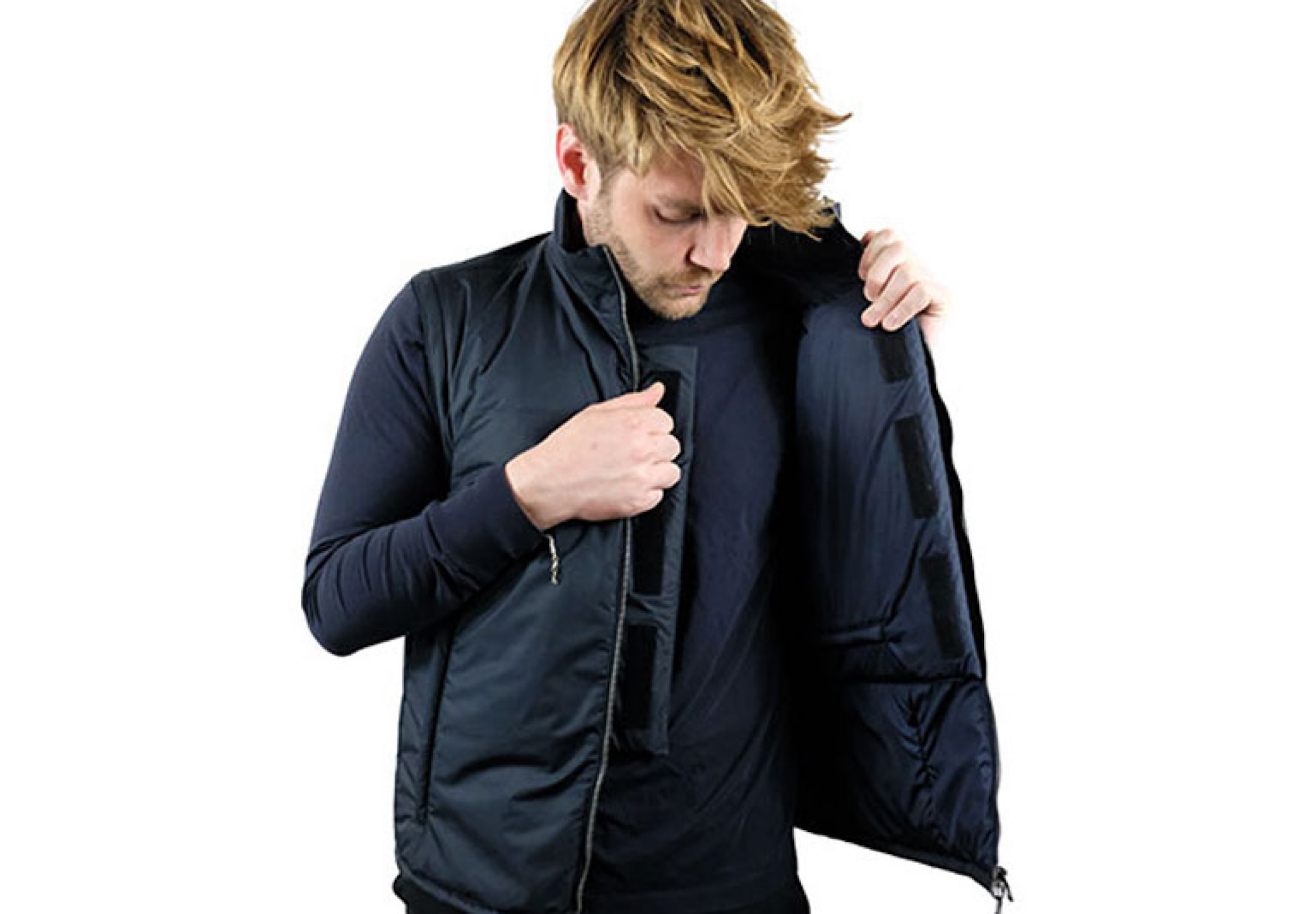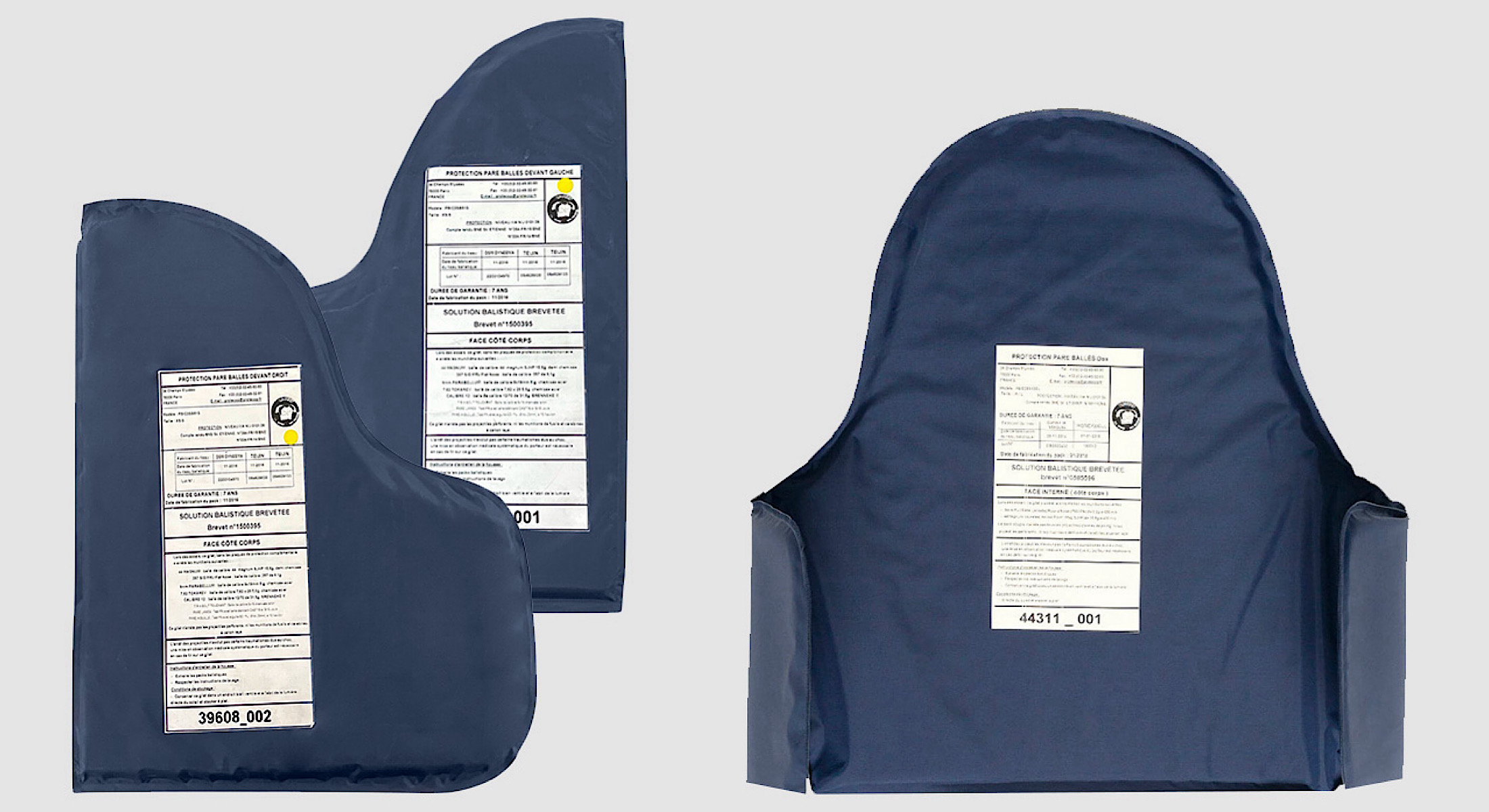In France, wearing a bulletproof vest raises many legal questions. Between NIJ standards, protection levels, and regulations governing defensive equipment, it's essential to understand what the law allows—especially for civilians seeking discreet protection on a daily basis.
This article by VEST PARIS, creator of the V007 bulletproof and stab-resistant vest, will take a close look at the legality of this bulletproof protective equipment, focusing on aspects such as ballistic protection, safety standards, Kevlar, and the various applications of these vests.
Ballistic protection and bulletproof vests
Ballistic protection, often associated with bulletproof vests, aims to provide defense against bullets and other projectiles. These vests may feature ballistic plates made of Kevlar or other similar materials. Their use is widespread in fields such as law enforcement, security officers, and even safety-conscious civilians.
Be careful because not all bulletproof vests can be worn by a civilian.
What kind of bulletproof vest can a civilian wear?
Yes, a civilian can wear it in many countries, but it still depends on local regulations and firearms laws. That's why the V007 jacket exists.
In many jurisdictions, the purchase and wear of bulletproof vests is legal for civilians without specific restrictions.
However, some regions may have specific requirements or rules regarding the purchase and possession of this equipment. In France, for example, a civilian can purchase and wear body armor below level 4. Anything above that is considered military equipment.
Civilians may purchase bulletproof vests for a variety of reasons, including high-risk occupations, personal safety, or in situations where there is a threat of violence. It is essential to research local laws and comply with applicable regulations before purchasing or wearing bulletproof vests.

Compliance with safety standards
The legal use of bulletproof vests is generally subject to compliance with local and national safety standards. The standards established by the NIJ (National Institute of Justice) are often used as a reference.
It is crucial that these bulletproof devices comply with these standards to ensure their effectiveness against various types of bullets.
Kevlar bulletproof vests: an extra level of security
Kevlar, a reinforced synthetic fiber, is often incorporated into the manufacture of bulletproof vests. This provides protection and safety against bullets while maintaining flexibility and comfort. Kevlar vests are prized for their ability to absorb ballistic impact, reducing the risk of injury.
A Kevlar vest with a discreet design is highly sought after by those who don't want to display their bulletproof security. And it's not just for law enforcement officers like police officers or close security officers. It affects civilians as well.
Discretion and compliance with NIJ standards
Kevlar vests are often designed for discreet wear, allowing users to integrate them into their everyday wardrobe without attracting attention. However, it is crucial that these vests comply with NIJ standards to ensure adequate protection. Vest covers must also comply to maintain the legality of their use.
Since Kevlar was invented to protect against bullets and improve the safety of professionals such as security guards, no other more effective fiber has been invented to serve as a range of ballistic shields. If you want to increase your level of security, you need several types of additional plates to protect against bullets.
Bulletproof plates for increased security
Ballistic plates play a vital role in the protection provided by bulletproof vests. Different levels of protection, such as Level III, indicate the vest's ability to withstand various types of bullets.
Users can choose vests based on their assessment of the anticipated threat level. For example, this table shows what a protection level corresponds to and which bullets it stops. This is because there is a safety standard for each bullet and weapon.
Level I: Provides minimal protection against small caliber handguns.
Level IIA: Protects against handguns larger than Level I.
Level II: Provides superior protection against handguns over previous levels.
Level IIIA: Protects against larger caliber bullets, including .44 Magnums.
Level III: Provides protection against shotguns and assault rifles.
Level IV: The highest level, capable of stopping high caliber bullets like the .30-06 or .308 Winchester.
These protection levels are rated based on the vest's ability to stop specific bullets and how well it resists penetration.
Additionally, there are bulletproof vests designed for specific uses, such as those intended for protection against stab wounds, or lighter models intended for situations where mobility is crucial.

Specific applications for law enforcement
Law enforcement agencies, such as municipal police, can benefit from specific ballistic plates adapted to their needs. These plates are often discreetly integrated into the uniform, ensuring comfortable wear while providing maximum protection.
If we talk about the municipal police, it is because it is becoming increasingly important in maintaining order on a daily basis.
Bulletproof Vest Manufacturers and Quality
Choosing the right bulletproof vest manufacturer is crucial to ensuring quality and compliance with safety standards. Choosing reputable and respected manufacturers in the industry ensures that the vests meet high standards and provide reliable protection.
Among the bulletproof manufacturers, in France we can count on the company Protecop or the company Paul Boyer. In the United States, the market is huge and the players in bulletproof are countless: SAFARI LAND, ANGEL ARMOR etc.
Conclusion: Safety and Legality
In conclusion, it is generally legal to wear a bulletproof vest, but it is imperative to follow local standards and regulations. Ballistic protection is a valid concern for various professions and individuals seeking to ensure their personal safety. By investing in equipment that meets the standards, everyone can increase their security against potential threats. This is what customers of the V007 vest are doing.
FAQ
Is wearing a bulletproof vest allowed for civilians in France?
Yes. In France, civilians can wear a Level IIIA or lower bulletproof vest. Only Level III and IV models, which incorporate rigid plates, are reserved for military personnel and law enforcement.
Do I need a permit to buy a bulletproof vest?
No, no authorization is required to purchase soft ballistic armor. However, armor classified as “war material” (level IV) is strictly regulated.
What are the legal protection levels for a civilian?
NIJ Levels I, IIA, II, and IIIA are legal. They protect against handguns (9mm, .357 Magnum, .44 Magnum). Above that (Levels III and IV) are reserved for professionals.
Is a bulletproof garment like the V007 jacket legal?
Yes, the VEST PARIS V007 bulletproof and stab-resistant vest is NIJ IIIA+ compliant. It is therefore completely legal for civilian use in Europe, while remaining discreet and comfortable.
Can you wear a bulletproof vest on the street?
Yes, as long as it's soft armor and not military equipment. However, it's advisable to choose a discreet model like the V007 jacket to avoid any social stigma.
